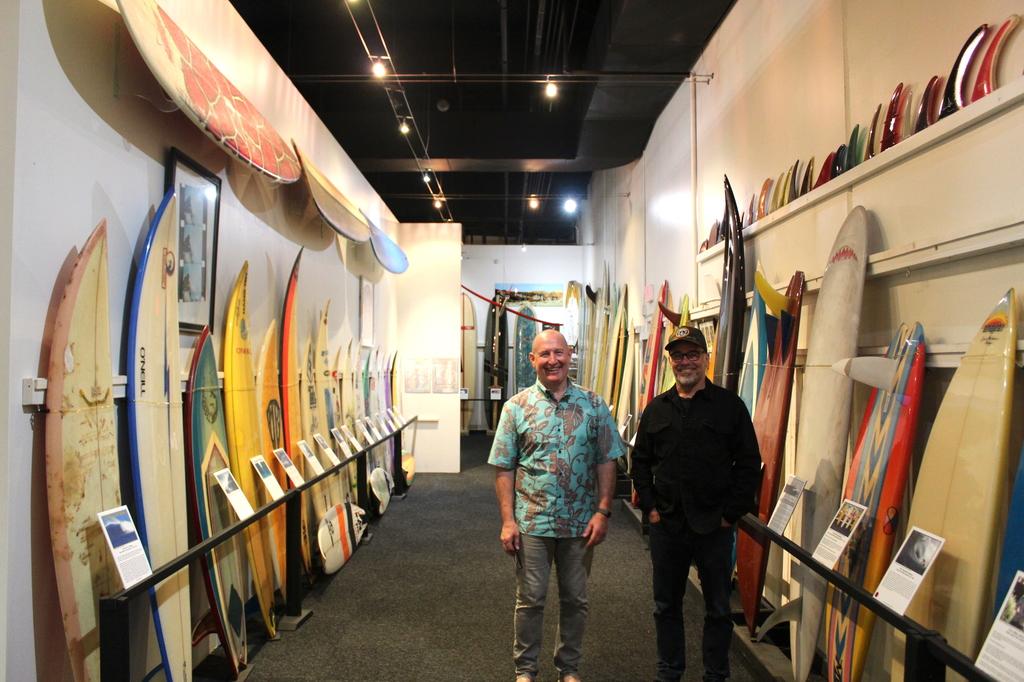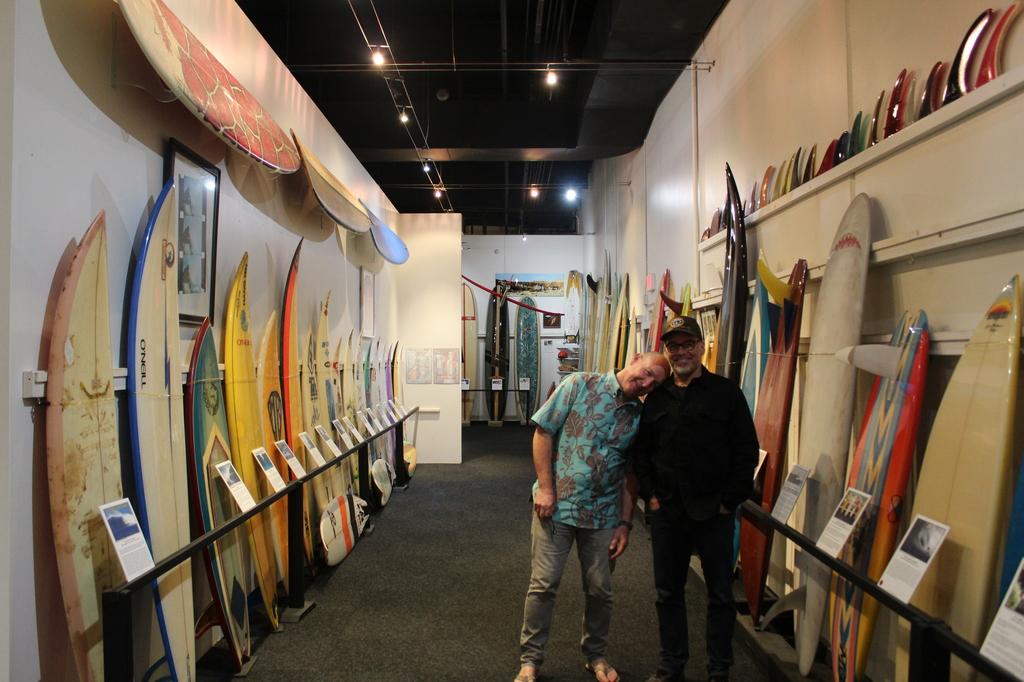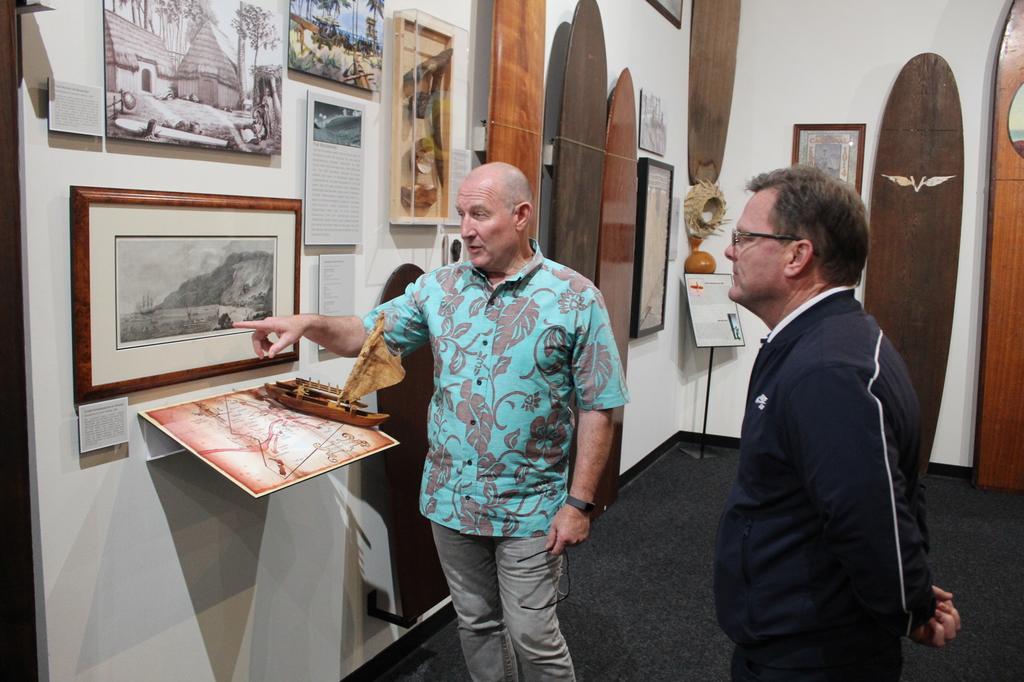Creative Spotlight: Catching creative waves with Don Meek and Glenn Brumage of SHACC
| November 18, 2019

Our CEO, Jack McGannon, and our head of community, Jack Huber, visited the Surfing Heritage and Culture Center (SHACC) museum in San Clemente, California and got to ‘hang ten’ with Glenn Brumage, the executive director, and Don Meek, the chair of the content committee.
Here’s an excerpt of their moving conversation on the link between creativity and surfing, the role photography has played in surf culture and how they’ve both built careers around their vocational passions.
About Surfing Heritage & Culture Center

The Surfing Heritage & Culture Center’s mission is to preserve and promote surfing culture. With Canto, SHACC took their Follow the Light photography competition to a global scale. Read their story here.
It’s great to have you both here! Could you give us some background about SHACC and what your mission is?
Glenn: We’ve been given the nickname, actually, by the previous editor of SURFER Magazine, Steve Peasant, as the ‘Smithsonian of Surfing.’ We really try to live up to that nickname and to do that, it’s really important for us to to save and store artifacts, whether they’re digital artifacts or physical artifacts, such as surfboards, wetsuits, trunks, leashes and wax, and all those things that go along with surf culture for future generations. We have the largest collection of surf artifacts in the world and we also tell the stories that go with it. And that’s where the content committee comes in, is gathering together all of the different parts and pieces so that the artifact and its story becomes content.
It was incredible for me to see throughout the museum how surfing has evolved with a lot of the big cultural developments and movements in American history. How do you guys think about the role surfing plays in American culture?
Glenn: In the 1950’s and 60’s, surfing and pop culture began to come together in really interesting ways, like surf music. It was changing the way that youth culture looked at the world – surf culture was divergent, not mainstream, and it was a catalyst for cultural changes in the 60’s and 70’s.

Surfing and creative expression seem to go hand-in-hand. What draws you guys to surfing, and how does it tie into creativity?
Glenn: Surfing has an attraction that’s really hard to explain. A lot of people from all walks of life and all over the world are attracted to it. It’s kind of a spiritual thing, riding waves, being in the ocean. As surfers we say, ‘once you’ve ridden a wave, you know.’ Feeling that power and that connection to Mother Earth and water makes it such a different experience.
Don: On any given day, each wave is very, very different. And that’s where creativity comes into play, to do the most that you can with that moment. It’s one of the things that’s very hard for people to get. The difference between surfing or any other sport is that you’re on a movable object on movable surface and you cannot necessarily predict what it’s going to do.
What strikes me about both of your stories is that you both fell in love with surfing and managed to have careers that were always touching the world of surfing. And now you’re stewards of the sport. How have you been able to have a fun, exciting career, but also keep it related to this thing that you’re so passionate about?
Don: I’ve come in and out of surfing from a professional perspective. I’ve been in the media business for 40 years. The first time I ever got to work in surfing was when I was working for a sports network. Then I went out of it for almost 10 years, and then came back and ran a group of magazines that were in the surf industry.
But I never stopped surfing. Even while I was commuting to Chicago for a job with a media company, I never stopped surfing. Now, I have the great good fortune of having both my professional life and my vocation meet again, so I’m deeply involved back in the surf business with a couple of ventures and also on the board at SHACC. I feel very fortunate to have come full circle that way. It’s amazing.

Glenn: I grew up here in San Clemente, surfing, skateboarding and skiing, and it was always a big part of my life. I moved up to Mammoth instead of going to college, and I was ski-racing. That was kind of a big deal. I thought maybe I could have gone to the U.S. development ski team, but my coach made me realize that it was not the path for me.
I knew that I was going to have to change my career path to still be a part of the sporting business. It was happenstance that moved me from the private sector into the public sector in the nonprofit world. It’s been a learning experience and it’s a lot of fun. And there’s great parts of it that I absolutely love. It’s like something I read from a fortune cookie: ‘You are exactly where you should be.’
Don: You never stop learning. You’re never, ever, ever gonna come to the end. It’s always about the journey.
And surfers have to surf. I mean, if it gets in you, it gets in you, you know, and I think it goes back to the thing about art. True artists, whether they’re making a living at it or not, have to create. It’s a DNA-level need that they have. Artists need to make art and writers need to write and photographers need to make images, and surfers need to surf.
